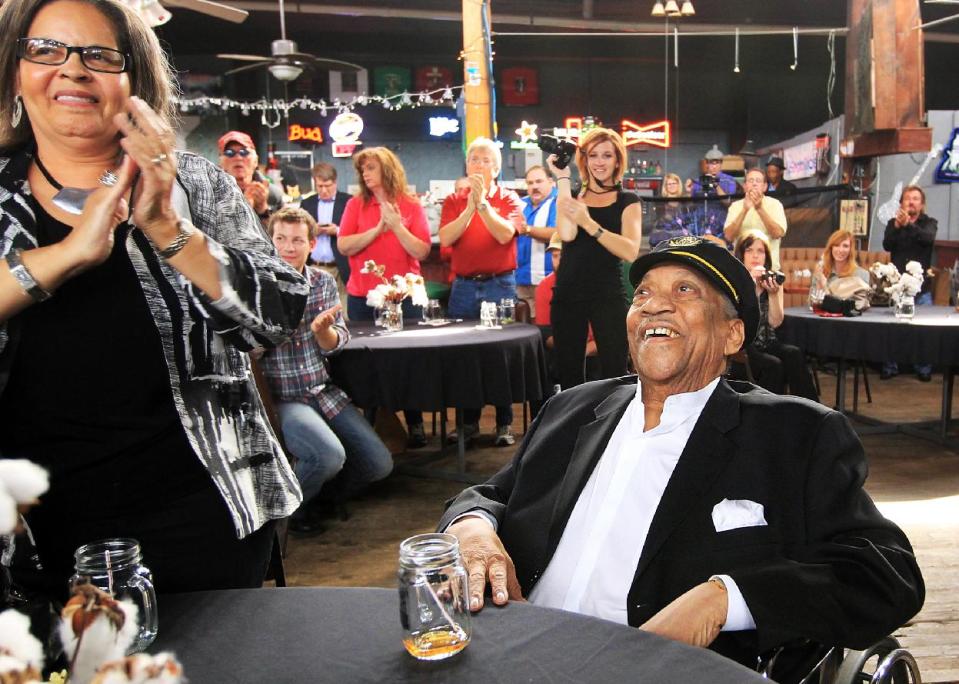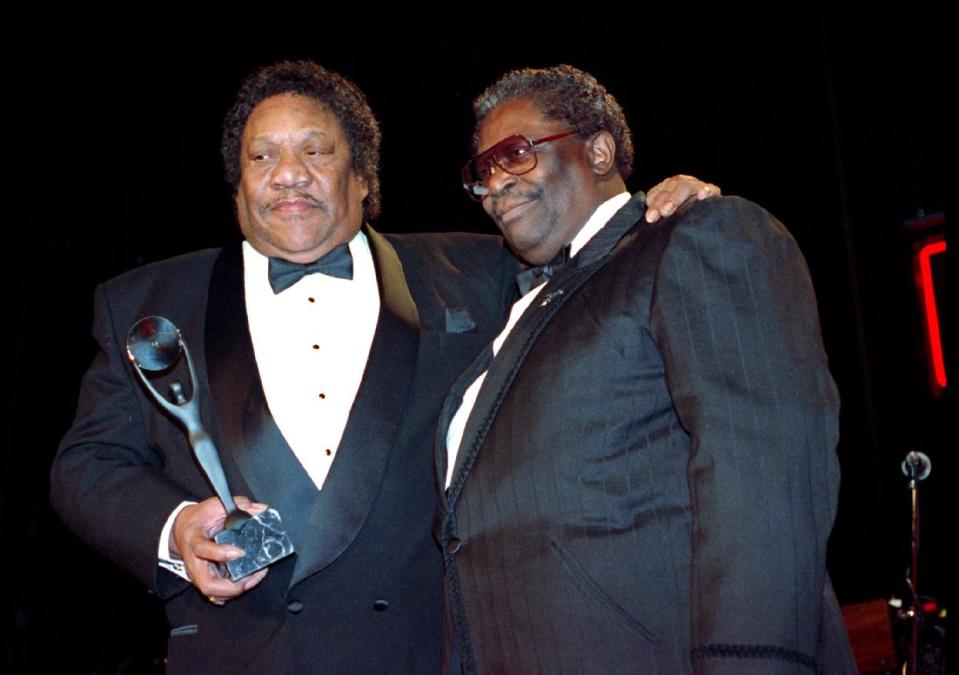Bluesman Bobby 'Blue' Bland remembered by friends
MEMPHIS, Tenn. (AP) — Full, sweet and melodious at one moment, powerful and primal in another, the iconic singing voice of the late Bobby "Blue" Bland was remembered by fans, friends and colleagues on Monday.
The Rev. Jesse Jackson told The Associated Press on Monday that he and his wife went to a Bland concert on the day they were married in 1962. Jackson called Bland a dear friend who was a "legendary, smooth balladeer."
"He found sweetness in bitter roots," Jackson said by telephone from Chicago. "He found good news in the blues and was the interpreter of pain. He turned pain and sorrow into joy."
Bland died Sunday in Memphis due to complications from an ongoing illness, according to his son. He was 83.
Described by friends and relatives as classy and compassionate, the tall, wide-shouldered Bland is in the Blues Hall of Fame and the Rock and Roll Hall of Fame. He blended Southern blues and soul in songs such as "Turn on Your Love Light" and "Further On Up the Road," notching more than 20 R&B hits in a career that lasted more than a half-century.
Though not as well-known as Ray Charles or B.B. King, he was an influence of scores of rock n' rollers, including Gregg Allman, David Bowie and Eric Clapton. Bland was one of the last of the living connections to the roots of the blues genre.
King was too saddened by Bland's death to comment publicly on Monday, spokeswoman Laverne Toney said.
"He's taking it very hard," she said
Bland was friends with King, having served as the blues guitarist's valet and chauffer at one point. They started the Beale Streeters, named after the thoroughfare and cradle of blues music in downtown Memphis. Upon his induction, the Rock Hall of Fame noted Bland was "second in stature only to B.B. King as a product of Memphis' Beale Street blues scene."
Bland scored his first No. 1 on the R&B charts with "Further On Up the Road" in 1957 and it was around this time he got his nickname, taken from his song "Little Boy Blue" because his repertoire focused so closely on lovelorn subject matter. He also had the nicknames "the Lion of the Blues" and "the Sinatra of the blues."
Beginning with "I'll Take Care of You" in early 1960, Bland released a dozen R&B hits. That string included "Turn On Your Love Light" in 1961.
Some of his best-known songs included "Call on Me" and "That's the Way Love Is," both released in 1963, and "Ain't Nothing You Can Do" in 1964.
Al Bell, the former producer and executive at the seminal Stax Records, said Bland's voice was versatile enough to handle non-blues classics such as "Somewhere over the Rainbow." Bell produced albums for Bland after his Stax days.
"Bobby Bland, I never heard another voice like his," said Bell, who has worked with singers like Otis Redding, Isaac Hayes, Wilson Pickett, Sam & Dave and the Staple Sisters. "You're talking about one of a kind."
Jackson, who said he spoke with Bland last week by telephone, cited "Cry, cry, cry," as one of his favorites. In that song, Bland's voice emphatically makes a point: "I want you to cry, cry me a river/I want you to, yes I want you to cry me a sea/Yes, I know someone's going to hurt you/Just like you've been hurting me."
Bland's performance of "Stormy Monday Blues" was the highlight of the Memphis Music Hall of Fame induction ceremony last November.
In a written statement, The Recording Academy said the Grammy Lifetime Achievement Award winner "seamlessly blended a mix of blues, country, gospel, jazz and pop music to create his unique sound."
"He was a stylistic pioneer who influenced countless musicians across many genres, with a career spanning nearly eight decades," said Neil Portnow, president and CEO of The Recording Academy.
Bland's funeral is scheduled Thursday in Memphis.


